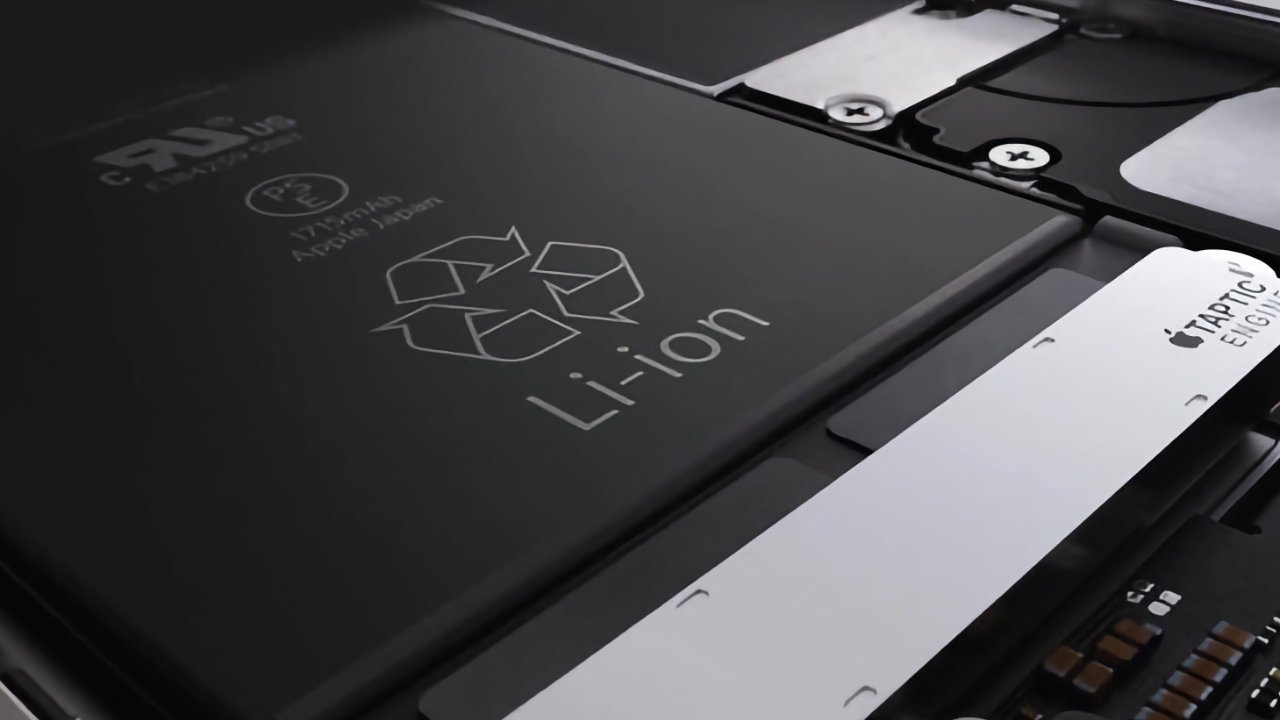Apple finally sends 'batterygate' checks to iPhone owners
Following its 2020 $500 million settlement to end a U.S. class action lawsuit over the iPhone "batterygate" saga, participants are finally starting to get payments.

An iPhone battery
The 2020 agreement by Apple to settle one of its so-called Batterygate lawsuits in the United States effectively ended the legal activity concerning Apple's attempt to maintain the stability of its older iPhone models. Over three years later, the checks are finally being issued to class members.
The settlement was agreed upon in May 2020, with affected owners of select iPhone models who submitted claims for the settlement by October 6, 2020 able to receive payments. Under the proposal at the time, Apple would make a minimum payment of $310 million and a maximum of $500 million, depending on the number of submitted claims.
In X posts first spotted by MacRumors, owners who applied for the settlement were starting to receive notifications of payments. Images show the settlement payments to be $92.17 per claim.
The list of affected customers include U.S. residents who owned an iPhone 6, iPhone 6 Plus, iPhone 6s, iPhone 6s Plus, iPhone 7, iPhone 7 Plus, or an iPhone SE that ran iOS 10.2.1 or later, or for the iPhone 7 and 7 Plus, ran iOS 11.2 or later before December 21, 2017.
The settlement is actually applying to dozens of identical cases that were consolidated in 2018, with Apple accused of breaking various laws due to its actions, referred to as Batterygate.
Apple released an iOS feature in iOS 10.2.1 and later that temporarily throttled chips under heavy loads. The throttling was intended to mitigate the effects of aging iPhone batteries, minimizing the chance of unexpected shutdowns.
The lawsuits claimed Apple didn't adequately inform users about the feature before implementing it, prompting complaints of reduced hardware performance and suggestions of planned obsolescence.
Apple apologized to iPhone owners in 2017 and reduced the out-of-warranty battery replacement charge to $29 for affected users.
While the U.S. Batterygate lawsuit is finally concluding with payouts, Apple is still having to deal with the issue elsewhere. In the UK in May, it attempted to stop another Batterygate lawsuit, one demanding $2 billion from the iPhone maker.
Read on AppleInsider

Comments
This was a lawsuit that never really had any merit.
🤣🤣🥱🥱🙄🙄 🤦🏻♂️🤦🏻♂️
iOS 10.2.1 includes bug fixes and improves the security of your iPhone or iPad.
It also improves power management during peak workloads to avoid unexpected shutdowns on iPhone."
If they are throttling for all batteries, then they have reduced peak performance. This performance downgrade might be seen as an attempt to get people to upgrade to a newer phone.
It boils down to whether the throttling applied only to phones in situations where the phone would crash, or if it also applied to all phones, including those that had a good enough battery to keep up with peak performance.
The “settlement solution” has created a network of lawyers whose expertise is extracting settlements. I doubt most are prepared to take it to court. The same is true for the auto wreck lawyers who know the insurance companies will settle. I’d like to see a move to the British legal system where the plaintiff pays all legal bills for both parties if they lose. This too would clamp down on frivolous suits.